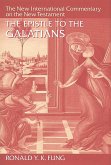The First and Second Epistles of St. Clement emerge as pivotal texts from the early Christian church, embodying the rich theological and moral discourse of the late first century. Written in a pastoral tone, these epistles articulate a vision for ecclesiastical unity and moral integrity amidst emerging doctrinal disputes and social upheaval. Clement's use of rhetorical devices, scriptural allusions, and references to early Christian traditions reflects a sophisticated literary style that underscores his aim to restore harmony within the Corinthian community and beyond. Through a blend of exhortation and theological reflection, these writings offer invaluable insights into the formative challenges the early church faced. Clement of Rome, an influential bishop and one of the earliest Apostolic Fathers, provides a unique perspective shaped by his proximity to the apostles and the early Christian milieu. His leadership in Rome and commitment to fostering ecclesial unity in the face of discord informed the central themes of his epistles. Clement's theological underpinnings, likely influenced by Hellenistic thought and the societal norms of his time, present a compelling case for the importance of obedience, humility, and community in the burgeoning Christian faith. For scholars, theologians, and lay readers alike, The First and Second Epistles of St. Clement are essential for understanding early Christian thought and practice. These texts resonate as timeless sources of wisdom that advocate for reconciliation and enlightenment, making them highly relevant for contemporary discussions regarding church unity and moral responsibilities within Christian communities. Engage with these epistles to explore the foundational ethos that shaped the trajectory of Christianity.
Dieser Download kann aus rechtlichen Gründen nur mit Rechnungsadresse in A, B, BG, CY, CZ, D, DK, EW, E, FIN, F, GR, H, IRL, I, LT, L, LR, M, NL, PL, P, R, S, SLO, SK ausgeliefert werden.









